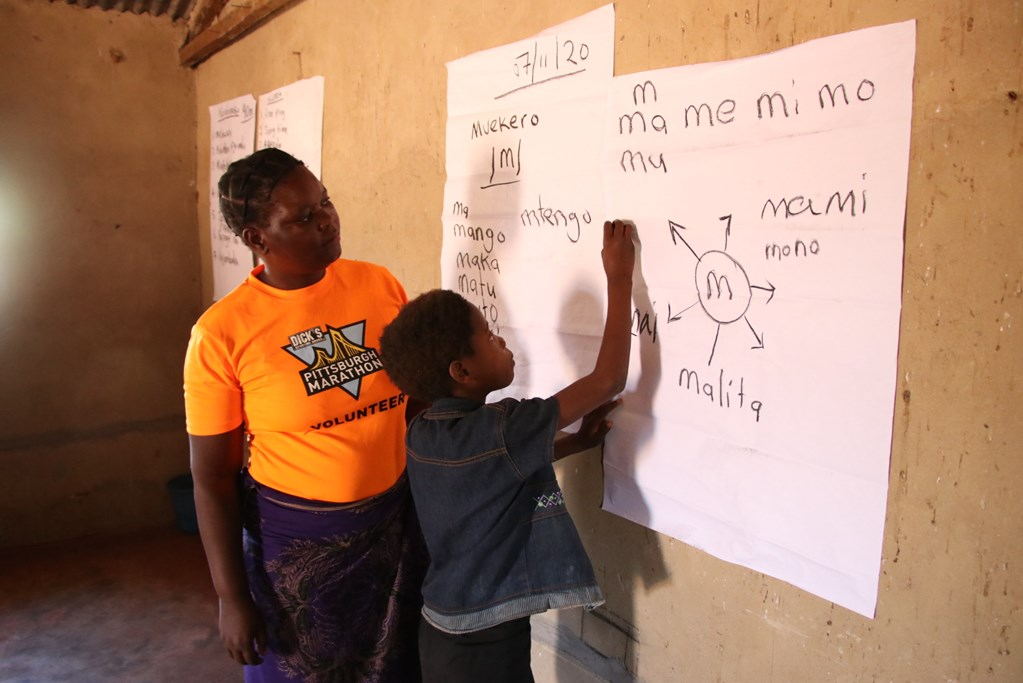
Unlocking Rabson’s future
Unlocking Rabson’s future
From cattle herder to future teacher
What if you were the reason a boy learned to read, and it changed his life forever?
What if instead of spending his childhood working on a remote hillside, he was free to study, play with his friends, and dream of a better future?
Rabson was only seven years old when his parents sent him out with a stick twice his height to herd their cows on the hills near his home in Nyimba, Zambia.
“Sometimes, I came across snakes while I was in the bush with the animals while they grazed, which was really scary, so I would run. Sometimes, I got soaked in the rains while out with the animals, which made me feel sick,” says Rabson.

The financial pressures of the COVID-19 pandemic mean that many families like Rabson’s are choosing to send their children to work, not to school, as they fight to put food on the table. It’s a symptom of the humanitarian crisis that COVID-19 has triggered for children - and one that will impact the future for generations.
But to Rabson’s mother Mkonda, the decision to send him to the fields seemed like a practical one for their struggling family in the here and now. She believed no teacher would “ever pay attention to someone as slow as Rabson.”
“We believed that sending Rabson to school was a sheer waste of time,” says Mkonda. “He barely spoke. He always seemed absent-minded. It seemed to us like something was wrong with his head.”
And so while his friends went to school and chased each other through the playground after class, Rabson spent four years chasing after animals. Every day, he fell further and further behind.
It used to hurt me a lot to see my brother go to school while I looked after the cows, because I wanted to learn also.
But Rabson is not the only one sent to the fields. In Zambia, it’s traditional for children to herd cattle instead of attend classes - and the impacts are felt nationally. In 2018, the World Development Report found more than half of Grade 2 children in Zambia were illiterate. But Zambia is working hard to improve children’s access to primary education. And thanks to child sponsors, World Vision is too.
World Vision invited parents in Rabson's community to special training on the importance of education. It included practical skills to help parents teach their children to read.
Mkonda and her husband had left school by Grade 9, but Mkonda saw that education was the path out of poverty and wanted her four children to go further than she was allowed.
“I knew that setting up a reading corner would help me educate my children,” says Mkonda. “So immediately after the training, I came home and set one up.”
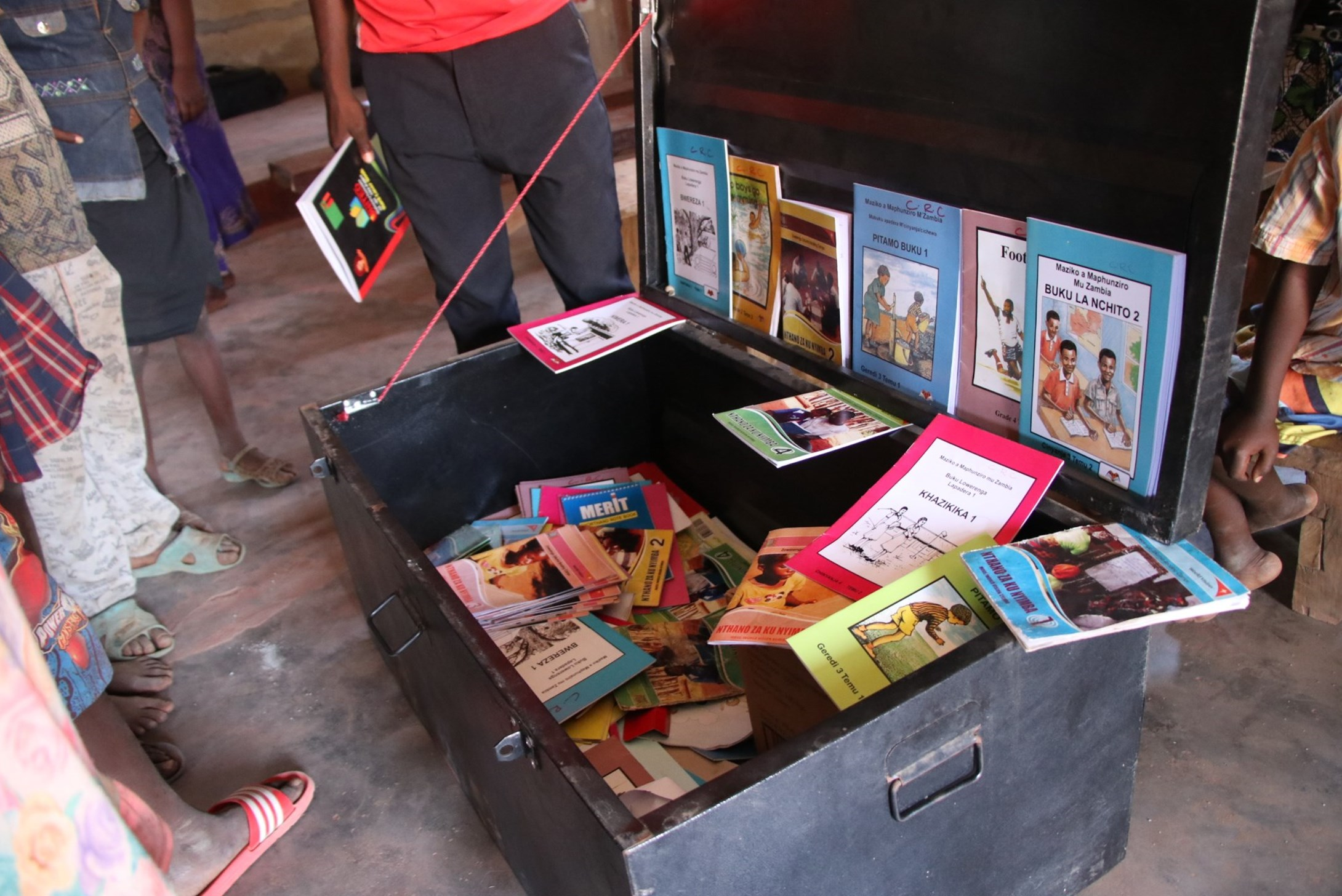
Rabson watched intently. “When I saw my mother making the reading corner, I was thrilled. I knew that now I would learn. But it was hard in the beginning.”
For the next three months, Mkonda dedicated herself to teaching her children – even Rabson.
“Every day in the evening, I sat the children down and started teaching them,” she says. “I noticed that Rabson took a keen interest in the lessons. My husband thought I was wasting my time, but he never stopped me.
“After three months, Rabson had learned the alphabet, vowels, and started to put words together. I was so excited! My husband and I could see he was speaking more freely, and talking with his brothers.”
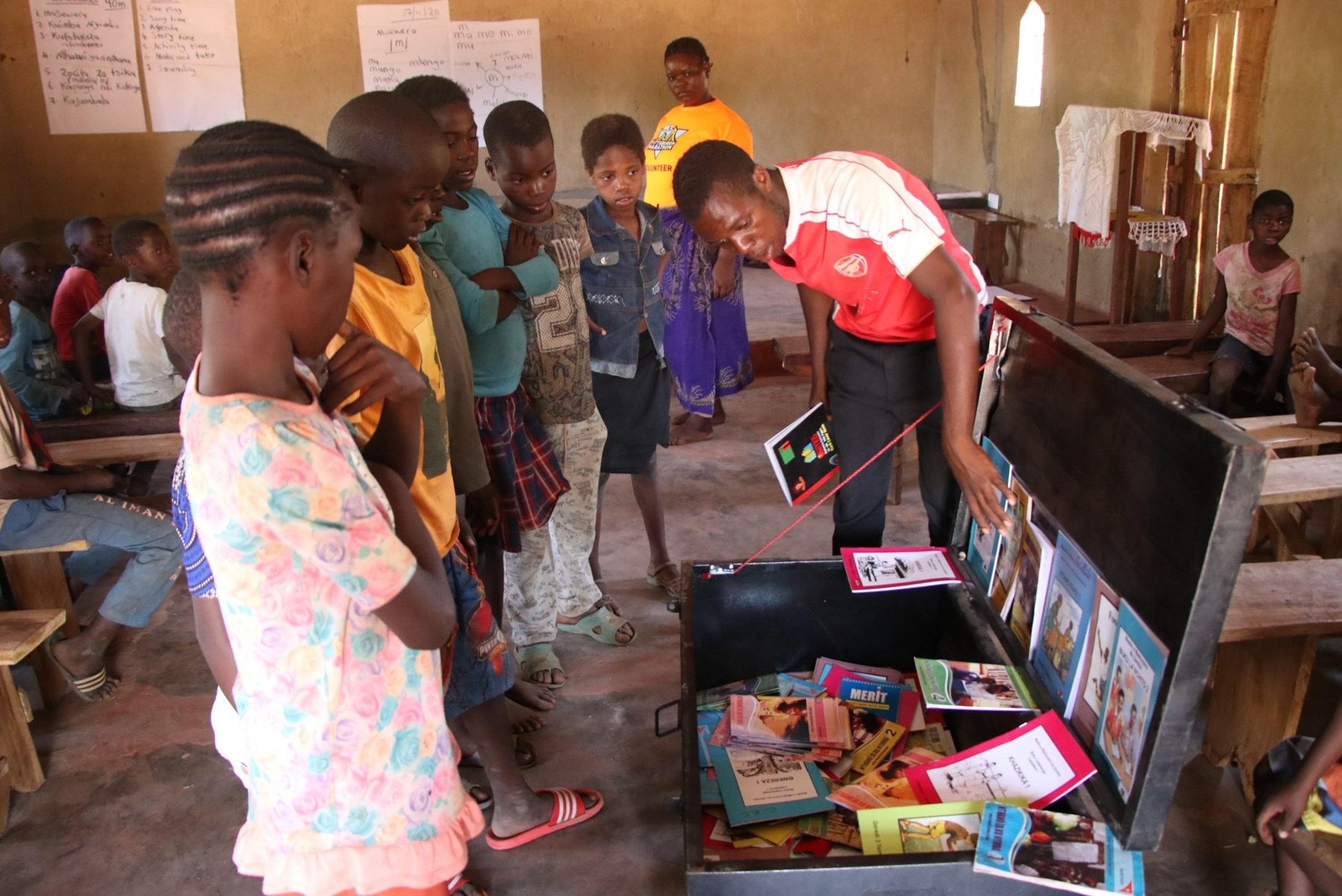
By the time he was 12, Rabson could read on his own and his parents decided to try and enrol him in school. Almost 400 children came to be assessed for the 50 available places in a Grade 1 class – and Rabson made the cut.
“When I went for the assessment to start Grade 1, I was excited. I was not afraid. I just wanted to start school,” Rabson says.
“When I look at him now, I am so proud – he is able to read and express his thoughts. I just wish I had started his education earlier,” says Mkonda.
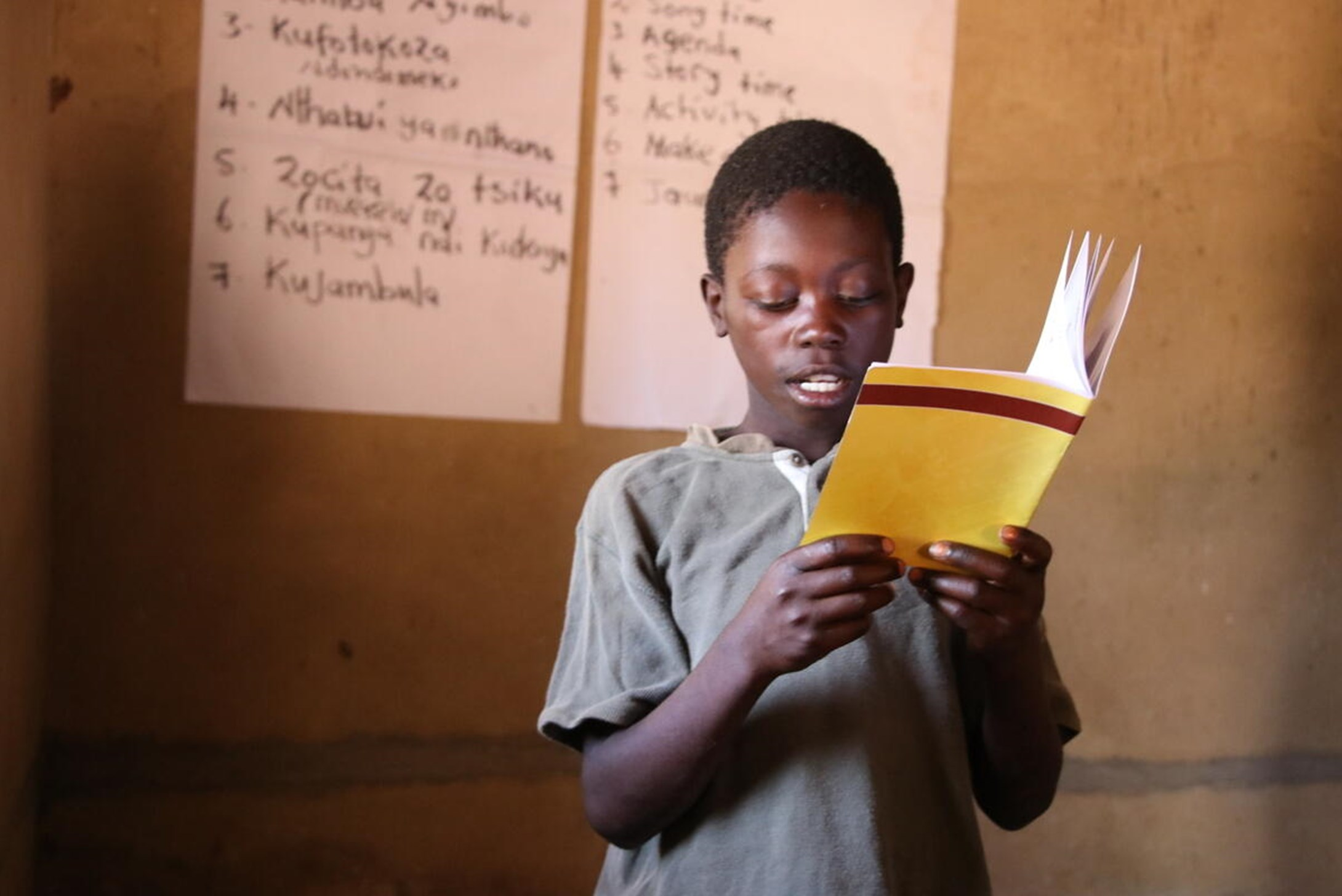
Now that he has started, nothing can stop Rabson from learning – even when COVID-19 hit and school stopped just three months after his first day. Rabson and his brothers have continued to learn using their home reading corner, with books borrowed from World Vision’s community library. And now, school has resumed and Rabson is also attending the reading camps World Vision runs each Saturday.
“I love going to reading camps; we play, sing, and I read with my friends,” says Rabson. “And when I am at school, I can play with my friends there too.”
Because of child sponsors, Rabson’s life has changed forever. He is facing a bright future and a certain tomorrow.
You too can sponsor a child like Rabson
Gift a child education and hope today.
Related Articles
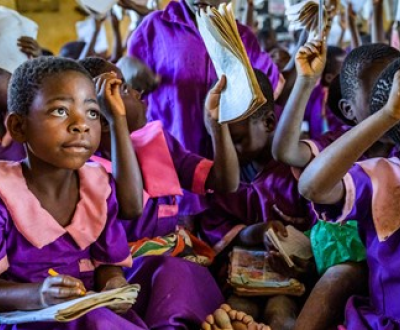
Providing a good education for all children
Learn about our work with teachers, families and communities for education access for all children